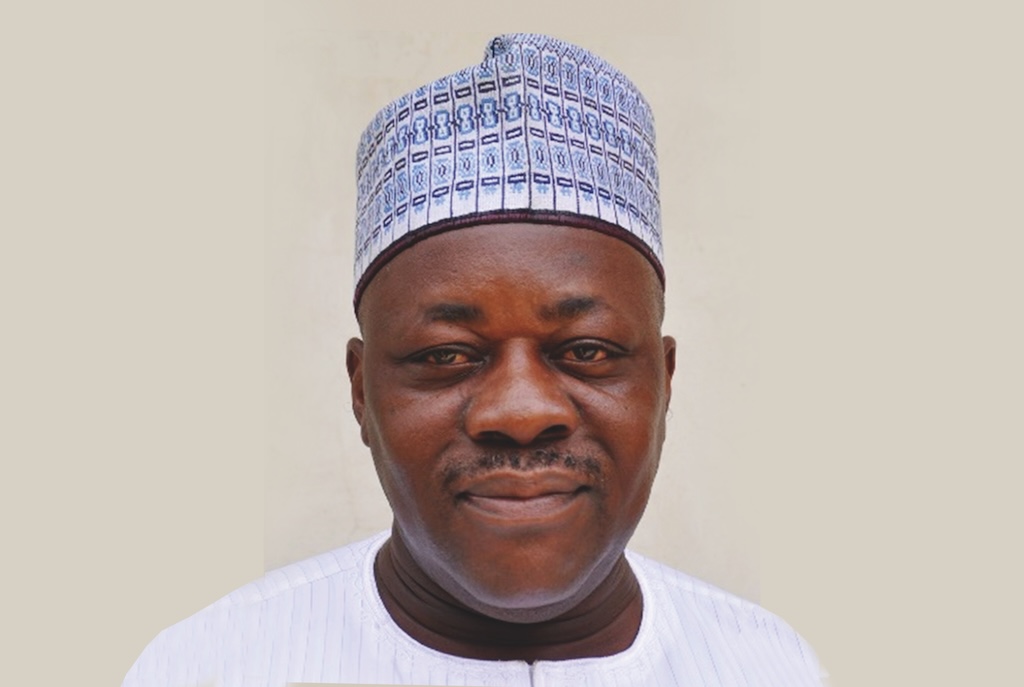Inclusiveness for women will benefit not just them but Nigeria as a whole. More women in governance will only bring progress and respect for Nigeria in the comity of nations. Even more important, by ensuring that Nigerian women fully enjoy the rights that the Constitution says are for all citizens, we deepen our democracy and enhance respect and consideration to the other half of our citizens. It would simply make all of us better human beings.
This week, I was in Sokoto participating in a workshop organised by WRAPPA to enhance the capacity of women journalists in activating the more effective participation of women in Nigeria’s democratic processes. The event drew participants from Katsina, Kebbi, Sokoto and Zamfara states. The Sultan of Sokoto, who spoke on the occasion, was represented by the District Head of Gagi, Alhaji Sani Umar Jaɓɓi, called for an end to the marginalisation of women in the nation’s affairs. He drew attention to the significant role place by Nana Asma’u, Usman dan Fodio’s daughter in the early phase of the development of the Caliphate, as an example to emulate.
Women constitute at least half of Nigeria’s population and by sheer numbers alone, they should have a commensurate presence in governance. However, their political participation remains disproportionately low. Since the return to civilian rule in 1999, the debate surrounding women’s underrepresentation in electoral contests and appointive positions has gained traction. Civil society groups, women’s organisations, and academic voices, have all called for structural reforms and policy interventions to enhance the roles of women in political life.
Policies like the National Gender Policy and initiatives by successive governments, have been aimed at bridging this gap, but their impacts have been minimal, with the road to equity remaining long and uncertain. Currently, in the 10th Assembly, female lawmakers occupy only four of the 109 Senate seats (2.7 per cent) and 16 of the 360 seats in the House of Representatives (4.7 per cent), bringing the total female representation in the 469-member Assembly to just 4.2 per cent.
One of the key sectors that can influence the bridging of this gap in a positive or negative manner is the media. The media wields immense power in shaping public discourse, perceptions of leadership, and the visibility of female political actors. It can either reinforce existing stereotypes or challenge them, depending on how women are portrayed and whose voices are amplified. Unfortunately, in Nigeria, media narratives often marginalise or trivialise female political aspirants, limiting their legitimacy in the eyes of the public, thereby closing, rather than opening doors. The media should be a catalyst for the forces that can promote female political participation.
The female politician in Nigeria is a major victim of the lack of civility in the political process. She suffers from various modes of marginalisation, many of which are hurtful and full of invectives. In general, party officials refuse to take the candidature of female aspirants seriously. Ironically, one of their main reasons is the affirmative action policy adopted by some of the parties, which waives the nomination fees for female aspirants. Party executives in most constituencies set out to label women as aspirants with less than the required commitment to the party.
Party barons at the local level repeatedly argue that by convincing the national executives to remove nominations fees for them, women have demonstrated a lack of commitment to the development of the party. This argument was used to make declarations that male candidates are more committed to the party because they make their financial contributions willingly and that commitment should be recognised and rewarded. Such officials, therefore, succeeded in labelling women aspirants as “anti-party” people and thereby created the basis for their exclusion. It is worthwhile recalling the analysis of Geof Wood on the role of labelling in eliminating competitors:
Once a negative label has been successfully imposed on an aspirant, it is easy to exclude the labelled person, irrespective of the formal rules and procedures established, because the person’s legitimacy has been eroded. A second negative labelling strategy used to exclude women aspirants has to do with the cultural deviant label. The way the argument is presented is that Nigerian culture does not accept assertive, or public, or leadership roles for women.
The most effective way to implement the policy is through legally binding quota systems, which successive governments have refused to enact. Instead, they claim that a quota system is undemocratic and would work as tokenism, which does not deal with the underlying causes of discrimination. Moreover, they argue that guaranteeing 35 per cent of elective and appointive positions to women by quota would diminish the democratic credentials of elections and competence in public institutions.
The 1979 Constitution was the first to introduce the concept of indigeneity into Nigerian public law as an equity principle to guarantee the fair regional distribution of power. Over the years, the principle has been subverted and used to discriminate against Nigerian citizens who are not indigenes of the places where they live and work. Women who are married to men who are non-indigenes suffer systematic discrimination. While women suffer greatly from the large repertoire of techniques used to eliminate people from political party primaries, less powerful men also suffer.
The National Gender Policy (NGP) of 2007 is geared towards achieving a just society devoid of discrimination and to harness the full potential of all social groups, regardless of sex or circumstance. The objectives of the policy are to establish the framework for gender responsiveness in all public and private spheres and strengthen the capacities of all stakeholders to deliver their component mandates of the gender policy, using the national gender strategic framework.
Specifically, the policy target is to adopt special measures, quotas and mechanisms for achieving the minimum critical threshold of women in political offices, party organs and public life by pursuing the 35 per cent affirmative action in favour of women, to bridge the gender gaps in political representation in both elective and appointive posts at all levels by 2015. As is the case with most policies in Nigeria, the real intention is to present it as a hope that will be dashed, as there has been no progress in implementing it.
The most effective way to implement the policy is through legally binding quota systems, which successive governments have refused to enact. Instead, they claim that a quota system is undemocratic and would work as tokenism, which does not deal with the underlying causes of discrimination. Moreover, they argue that guaranteeing 35 per cent of elective and appointive positions to women by quota would diminish the democratic credentials of elections and competence in public institutions.
In 2022, women groups from within and outside the National Assembly mobilised and proposed a number of Bills that that could use constitutional mechanisms to leap-frog the challenges to the low participation of women in the political process. Many of them had been inspired by some of the recommendations from the Justice Uwais Electoral Reform Committee. They were all designed to seek to promote more opportunities for women in political parties, governance and the society at large. All these bills were rejected by the “Distinguished” Senators and “Honourable” Members of the House of Representatives, demonstrating their contempt and lack of regard for Nigerian women.
One of the bills sought to allocate 35 per cent of appointed political positions, such as ministers, commissioners and board memberships, to women. This would have given meaning to the 20-year old Nigerian gender policy that enunciated this 35 per cent allocation. Nigerian men were ready to accept the policy as a theoretical right, which had never been implemented. Precisely for this reason, the Bill sought to give teeth to this government policy so that it can be implemented, yet they threw it out.
My feeling was that the cavalier and arrogant manner in which the members of the National Assembly threw out these Bills very clearly says that they do not want progress for Nigeria, and their sole interest is in enhancing the power of Nigerian men. This is unacceptable and female advocates working with interested Nigerian men must come out and demand that all five gender Bills be reconsidered and passed before the 2027 elections.
Another bill sought to create special seats for women in National and State Assemblies. This was proposed because the men who are gatekeepers in political parties have almost always blocked women seeking nomination to contest for executive and parliamentary seats. The reserved seats would have gone around this problem and it is now crystal clear that these men simply do not want women to have access to decision-making meeting rooms and chambers in the country.
Given the history of male gatekeepers within political parties regularly blocking female aspirants, another Bill had proposed applying the 35 per cent gender policy in the appointment of women into party administration and leadership. This too was thrown out.
Yet, another Bill rejected by the National Assembly had sought to address the problems of the marginalisation that women face when they are married to men from states they are not indigenes of. The proposal was that such women should automatically enjoy the indigeneity rights of their husband’s states. This too was thrown out.
My feeling was that the cavalier and arrogant manner in which the members of the National Assembly threw out these Bills very clearly says that they do not want progress for Nigeria, and their sole interest is in enhancing the power of Nigerian men. This is unacceptable and female advocates working with interested Nigerian men must come out and demand that all five gender Bills be reconsidered and passed before the 2027 elections.
Inclusiveness for women will benefit not just them but Nigeria as a whole. More women in governance will only bring progress and respect for Nigeria in the comity of nations. Even more important, by ensuring that Nigerian women fully enjoy the rights that the Constitution says are for all citizens, we deepen our democracy and enhance respect and consideration to the other half of our citizens. It would simply make all of us better human beings.
A professor of Political Science and development consultant/expert, Jibrin Ibrahim is a Senior Fellow of the Centre for Democracy and Development, and Chair of the Editorial Board of PREMIUM TIMES.
Support PREMIUM TIMES’ journalism of integrity and credibility
At Premium Times, we firmly believe in the importance of high-quality journalism. Recognizing that not everyone can afford costly news subscriptions, we are dedicated to delivering meticulously researched, fact-checked news that remains freely accessible to all.
Whether you turn to Premium Times for daily updates, in-depth investigations into pressing national issues, or entertaining trending stories, we value your readership.
It’s essential to acknowledge that news production incurs expenses, and we take pride in never placing our stories behind a prohibitive paywall.
Would you consider supporting us with a modest contribution on a monthly basis to help maintain our commitment to free, accessible news?
TEXT AD: Call Willie – +2348098788999






